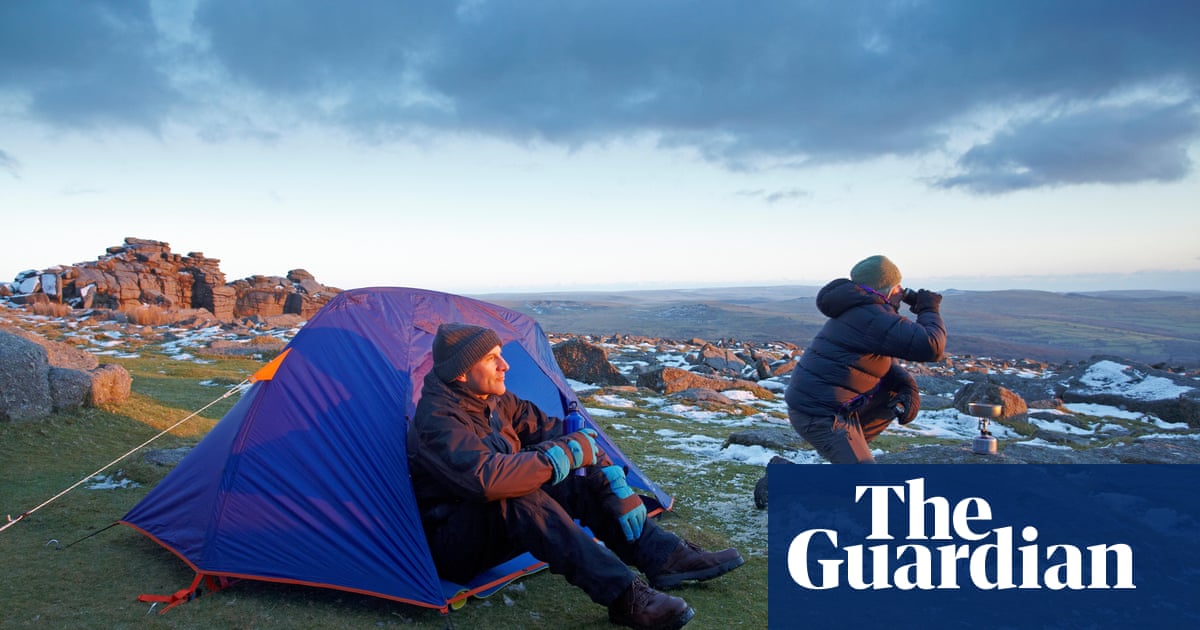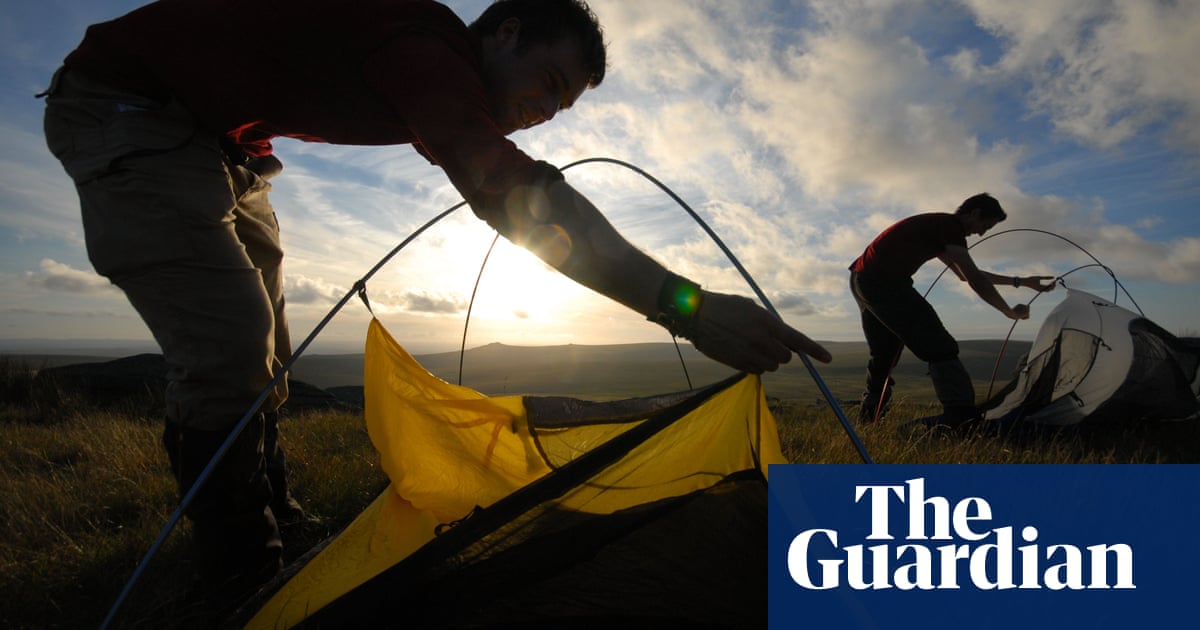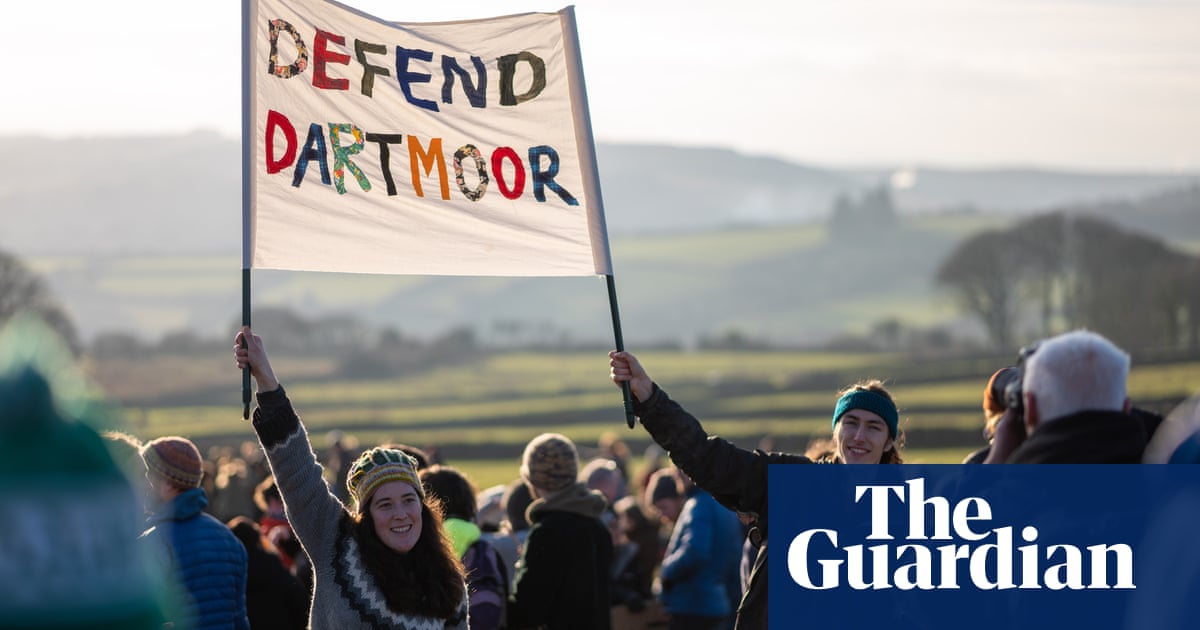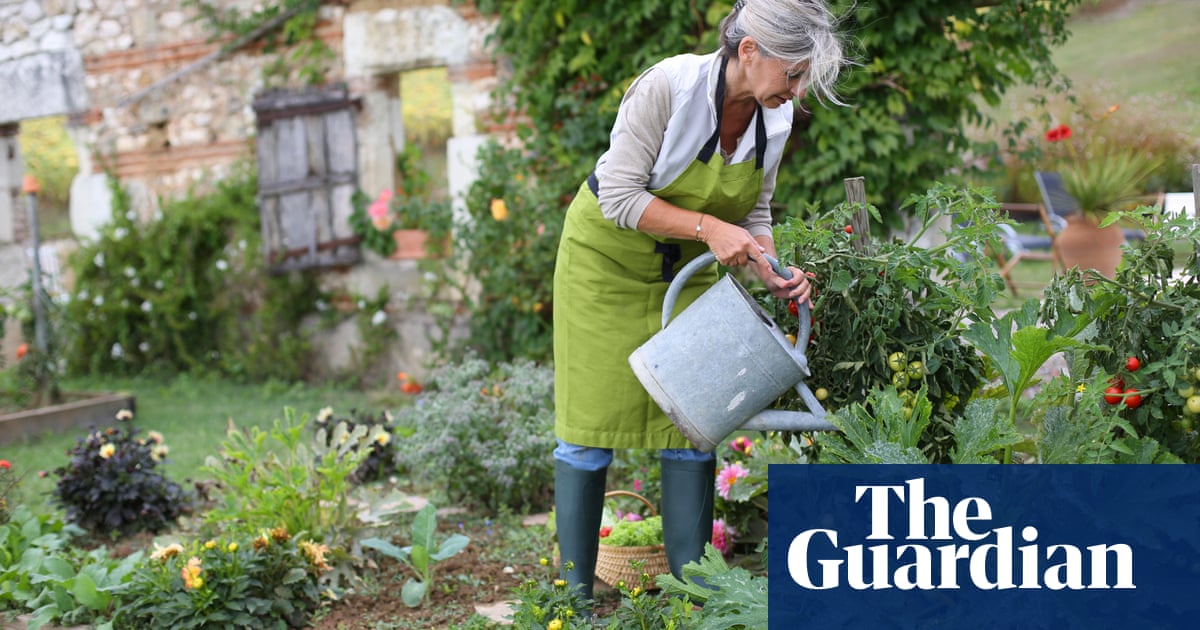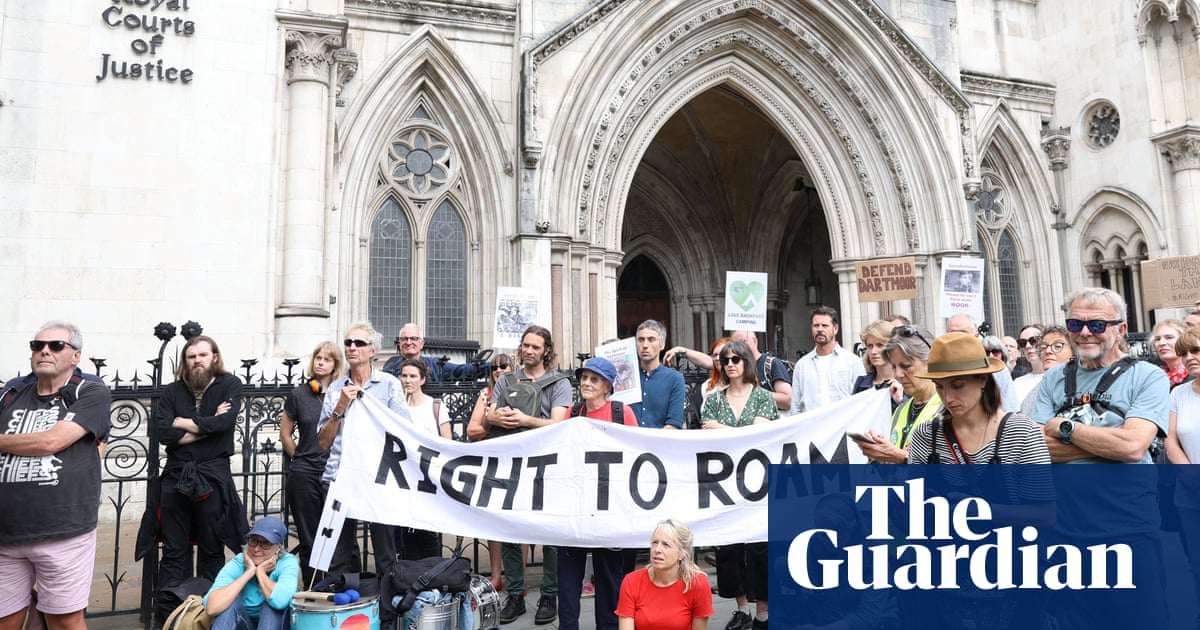
Wild camping is not recreation because sleeping is not an enjoyable activity, lawyers acting for a wealthy landowner said in court while defending a judge’s decision to ban the activity on Dartmoor national park.
In a packed courtroom at the Royal Courts of Justice in London on Tuesday, lawyers for the Dartmoor national park authority (DNPA) brought an appeal against the decision to ban backpack camping on the common land. The case hinges on whether wild camping counts as “open-air recreation” as allowed in a 1985 law.
Hearing the appeal, the Master of the Rolls, Sir Geoffrey Vos, acknowledged this is a “tricky and important case”. Camping had been assumed to be allowed under the Dartmoor Commons Act since 1985, until a judge ruled otherwise in January this year. It was the only place in England such an activity was allowed without permission from a landowner.
Alexander Darwall, a hedge fund manager and Dartmoor’s sixth-largest landowner, brought the case against the national park, arguing that the right to wild camp on the moors never existed. Darwall, who in 2013 bought the 1,619-hectare (4,000-acre) Blachford estate on southern Dartmoor, offers pheasant shoots, deerstalking and holiday rentals on his land. He was present at the court on Tuesday.
Timothy Morshead KC, acting for Darwall, said the Dartmoor Commons Act only confers the right to “wander around” on the common, “straying from footpaths” either on horseback or by foot – not to linger there. He argued if those drafting the law wanted people to camp, they would have made provision for it in the law.
He said wild camping cannot count as recreation or enjoyment because “sleeping overnight on the commons is not recreation, open-air or otherwise, because you are just asleep”.
Dozens of campaigners gathered outside the court to assert their right to camp under the stars. Speaking to them, the Green MP, Caroline Lucas, who recently tabled a bill to allow a wider right to roam, said: “We thank hedge fund manager Alexander Darwall for inadvertently galvanising a movement that may lead to the biggest shake-up of land rights in a generation.”
The high court in January ruled Darwall’s lawyers were correct and that the right did not exist across Dartmoor, and that backpack camping was not included in the definition of open-air recreation.
However, lawyers for the DNPA appealed against the decision, arguing it hinges on a narrow definition of open-air recreation, where only activities such as walking, horse riding and picnicking are permitted. They also argued that it fails to take into account the historical understanding of the law, which many people, including the park authority, understood to mean a right to camp and leave no trace. The court granted them the right to appeal on this basis.
In court on Tuesday, acting for the DNPA, Timothy Straker KC argued: “A recreation can embrace sleep – for instance the recreation of taking 16 hours on Dartmoor to include sleeping overnight so one can observe the sunset in the evening or sunrise in the morning. It is not a sensible proposition to suggest that sleeping takes one outside the scope of recreation.”
Voss, playing devil’s advocate, said one may argue: “You don’t necessarily enjoy anything whilst you sleep, you camp to keep yourself alive, but the recreation is the walking. Camping is not in the open air as you pitch a tent, and secondly you are not really recreating, you are just maintaining your human capabilities.”
Straker responded that on the contrary, camping can be an enjoyable form of recreation: “A camper’s recreation may be hiking and camping and some may view the walk as a necessary chore to enable one to enjoy the recreational activity of camping.”
He added: “There are public health advantages given by open-air recreation, which stands to be encouraged not discouraged.”
Morshead argued outdoor camping could “blight” the experience of the commons for others: “A walker or rider who stops and erects a tent is more than merely present on the commons for the purpose of open-air recreation – and to a very appreciable extent, for example because the structure so erected may blight the very views which others would wish to enjoy, and occupy the very land over which others might wish to wander on foot or on horse.”
Morshead added that erecting a tent stopped others being able to access, on foot or horseback as allowed in the act, the land on which the tent is erected. He said erecting a tent was what stopped camping from being recreation.
The lawyer also argued that to allow camping would be to put the rights of the public over the rights of the landowner: “People camping on Dartmoor are a potential source of genuine difficulty, interfering in ways which are substantial with the landowners’ rights over their property.”
A ruling is expected at a later date.






